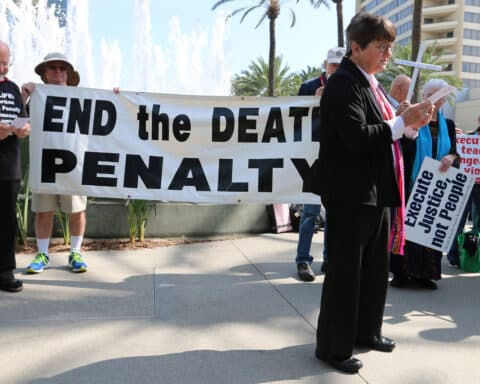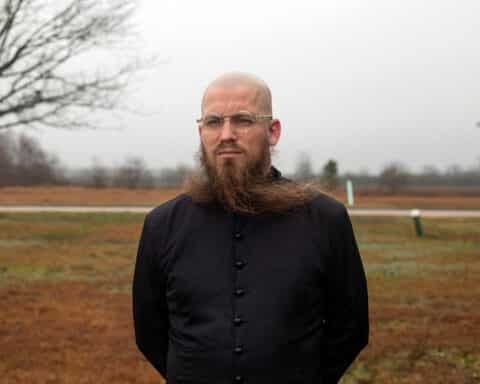
— Daniel Barton, Fayetteville, North Carolina
Answer: The pope has not declared the death penalty an intrinsic evil. Rather he called the use of the death penalty “inadmissible” in our times. The exact wording of his change to the text of the Catechism of the Catholic Church is:
“Recourse to the death penalty on the part of legitimate authority, following a fair trial, was long considered an appropriate response to the gravity of certain crimes and an acceptable, albeit extreme, means of safeguarding the common good.
“Today, however, there is an increasing awareness that the dignity of the person is not lost even after the commission of very serious crimes. In addition, a new understanding has emerged of the significance of penal sanctions imposed by the state. Lastly, more effective systems of detention have been developed, which ensure the due protection of citizens but, at the same time, do not definitively deprive the guilty of the possibility of redemption.
“Consequently, the Church teaches, in the light of the Gospel, that ‘the death penalty is inadmissible because it is an attack on the inviolability and dignity of the person,’ and she works with determination for its abolition worldwide” (CCC, No. 2267).
Note therefore that the inadmissibility of the death penalty is contingent on three factors: increasing awareness of the dignity of every human life, a certain wariness as to the uneven application of the death penalty by the state, and more effective means of detention. “Consequently,” the Church has largely altered her prudential judgment on the use of the death penalty from a sometimes-appropriate response to one that is inadmissible.
A Catholic is not absolutely bound to accept this determination or wording by the pope, even though it is placed in the catechism. However, for nearly 70 years popes and the vast majority of bishops have called for the abolition of the use of the death penalty. In times where we must insist on the dignity of human life from conception to natural death, this seems a reasonable course for the Church to pursue, even though there are significant differences between abortion, euthanasia and the death penalty.
Divine punishment
Question: When I was a child and found myself in trouble, my mother would always sternly say, “God is punishing you!” As an adult, I still wrestle with this and often feel that bad luck or misfortune is, indeed, punishment from God for either something that I did or didn’t do. Does God really punish us?
— Name withheld, Los Angeles, California
Answer: We ought to be careful about ascribing too many things to God’s punishments. Difficulties and calamities often emerge simply from the fact that we live in a fallen world beset with uncertainties, natural disasters and disease. Further, many of these mishaps also seem to occur rather unevenly and arbitrarily and are difficult to assign to God, who is just. Many other sufferings emerge in this world due to human sinfulness, not as a direct result of God’s punishment. Unless God were to intervene by severely limiting human freedom and orchestrating every outcome, we have to accept that much of our suffering is self-inflicted. Sadly, too, suffering due to human sinfulness also has many bad effects on others.
That said, Scripture does teach that God punishes us (cf. Heb 12:4-13). But this punishment is for our good, not simply to vent his anger. Like any good parent, God first instructs and corrects. Only after these methods fail does punishment ensue. The purpose of punishment is to experience in a small way the consequences of sin so that we do not experience them in a larger and more permanent way. Hence God will craft his punishments in ways that help us to learn and also to grow in holiness. As such it will be crafted in a way that benefits us, not crushes us; that teaches us, not tortures us.
We must accept that there is some mystery in God’s providence. Yet Scripture gives this assurance: “all things work for good for those who love God, who are called according to his purpose” (Rom 8:28). So, stay close to God, accept his corrections and punishments. But do not easily assume that all difficulties are God’s punishment. Turn to him confidently in every need.
Msgr. Charles Pope is the pastor of Holy Comforter-St. Cyprian in Washington, D.C., and writes for the Archdiocese of Washington, D.C. at blog.adw.org. Send questions to msgrpope@osv.com.





